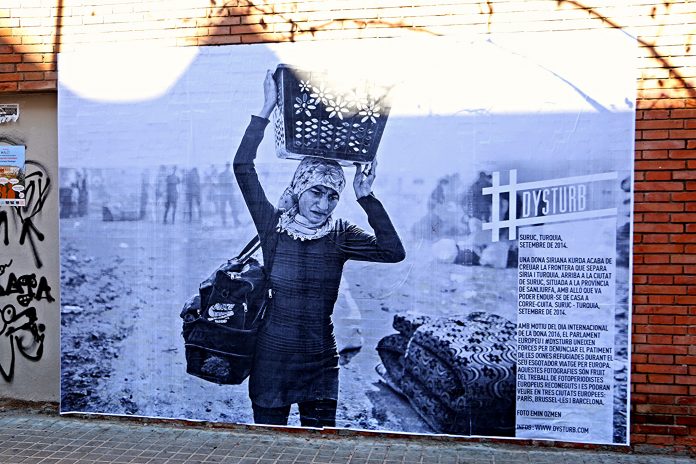The European Parliament’s Civil Liberties committee on April 25 approved new rules aimed at simplifying and speeding up the processing of asylum applications, particularly for children.
A proposed new regulation on a common procedure for granting international protection in the EU, which lays down how national authorities are to manage asylum applications, was passed by 36 votes to 12 with 8 abstentions. It aims to ensure asylum applications are processed more consistently across the EU, so as to discourage applicants from lodging multiple applications in different member states.
“This Regulation represents a major step forward towards the creation of a true Common European Asylum System (CEAS),” said Lead MEP Laura Ferrara (EFDD, IT). “The current procedural differences will be overcome and the system further harmonised. Parliament did a good job in securing the right balance between ensuring the right procedural guarantees to genuine asylum seekers while – at the same time – preventing the abuses that contributed to the collapse of the current CEAS.”
Under the proposed rules, applicants should make their application in the member state of first entry, or in the one established in accordance with the revised Dublin Regulation. If they refuse to give their personal data (name, birth date, gender, nationality, ID card), provide biometric data or allow the authorities to examine their documents, their application will be rejected.
Asylum seekers must be duly informed, in clear language, about the procedure, their obligations and rights, including the right to free legal assistance and representation.
Also, applications for international protection may be rejected as inadmissible if the applicant has already been recognised as a refugee in a non-EU country (first country of asylum) or has a “sufficient connection” such as a previous residence with a safe country where he or she may “reasonably be expected to seek protection”.
The list of “safe countries of origin” includes democracies not generally engaging in persecution, torture, indiscriminate violence or armed conflict. Albania, Bosnia and Herzegovina, the former Yugoslav Republic of Macedonia (FYROM), Kosovo, Montenegro and Serbia are on the list. MEPs removed Turkey from the list based on the information provided by EU member states, the European External Action Service, the European Asylum Support Office, the UNHCR, the Council of Europe and other bodies, including NGOs.
Children, under the new proposal, will be subject to a different set of rules. MEPs agreed that all unaccompanied minors should be assigned a guardian within 24 hours of making the application and always before biometric data are collected. Children, accompanied or not, should receive tailored information about their right to ask for asylum. The “first country of asylum” and “safe third country” concepts must not be applied to unaccompanied minors unless this is clearly in their best interests.
According to Jeroen Lenaers, spokesman for the European People’s Party (EPP) Group in the European Parliament, it is important to discourage asylum seekers from taking dangerous routes to Europe, especially when they had already found safety outside of Europe.
“In those cases, when a person from a safe third country does decide to travel onwards after having already found safety, member states will have the possibility to send those applicants back. This has been resisted by a number of groups, but we, the EPP Group, made sure that the rules will be clear in this regard.”
The European Conservatives and Reformists (ECR) Group in the European Parliament issued a warning. ECR Finnish MEP Jussi Halla Aho said: “It is disappointing that on a proposal that was intended to simplify asylum procedures and combat abuse across asylum systems, the Parliament has adopted a position that would have the complete opposite effect and defies common sense.
“Our priority must be to put in place consistent and clear rules in order to help the most vulnerable and genuine asylum seekers and to be able to return illegal migrants to their home country as quickly and efficiently as possible. If we do not, Brussels will be unable to reinstate public confidence in our asylum systems.
“Hopefully some sense comes from negotiations with the other EU institutions so that we put in place a system which is capable of prioritising genuine asylum seekers.”

